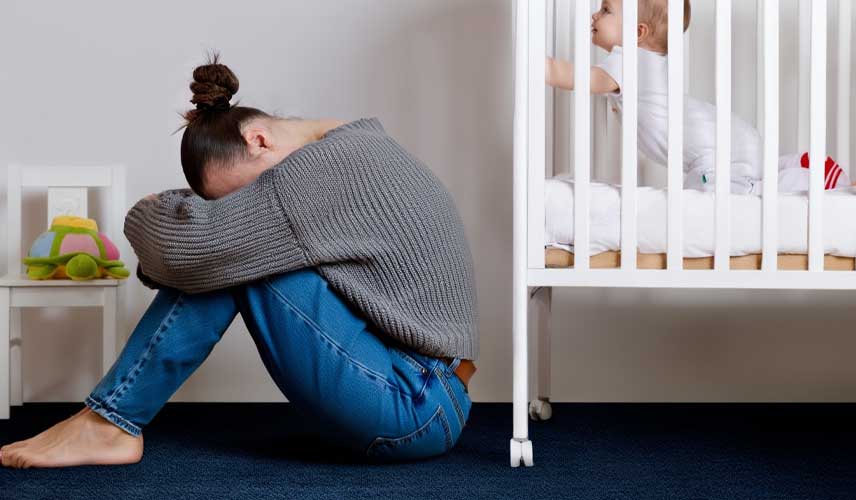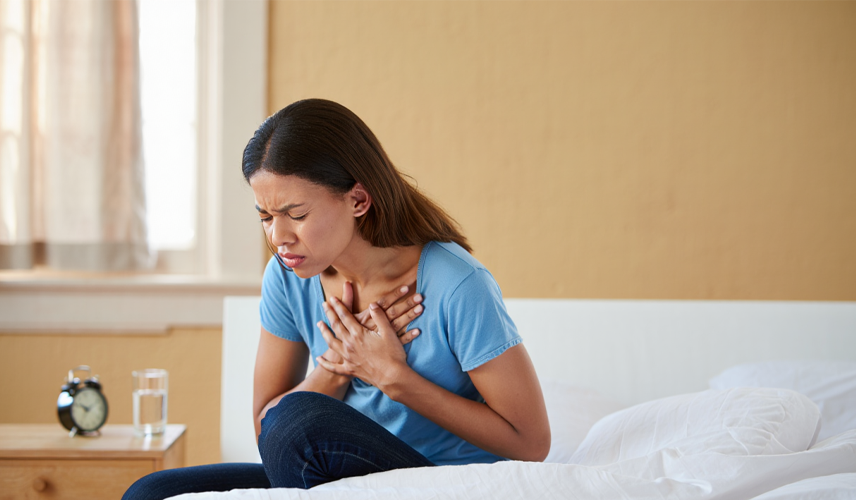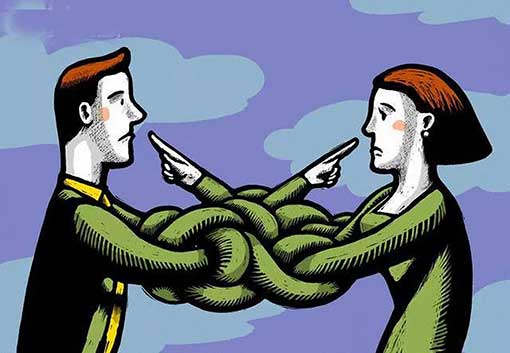
What is Postpartum Depression, What are its Causes and Symptoms?

Postpartum depression or postnatal depression is a condition that can arise immediately after childbirth or at any time within the following year. Many women who have had a baby experience a mix of happiness along with mild sadness and anxiety, but this usually resolves within 2 to 3 weeks. However, some mothers may experience more severe issues and may need to seek help.
A new mother may experience 3 different mood changes: Baby blues is the most commonly observed and is considered normal. Its main symptoms include sudden shifts from happiness to sadness, unexplained crying, discomfort, restlessness, impatience, and feelings of loneliness. This issue often resolves without the need for treatment. Talking to other mothers or joining a support group of new mothers can help women in this situation. Postpartum depression is a condition that can appear days or even months after childbirth and leads to the mother experiencing the problems of the baby blues period in a much more severe way. If a woman experiencing this issue is unable to perform her daily tasks or fulfill her responsibilities, she should see a doctor. Otherwise, the problems she faces may worsen. Postpartum psychosis, which occurs in about 1 in 1000 cases, is an extremely severe mental illness that must be treated without delay. This issue often arises at any time within the first 3 months following childbirth, and mothers experiencing it may lose touch with reality. A woman affected by postpartum psychosis may hear things that are not there, believe in irrational things, and may also experience strange feelings, exhibit odd behaviors, become irritable and angry, and suffer from insomnia.
Symptoms of Postpartum Depression
*Severe sadness or feelings of emptiness, lack of response to emotional stimuli, numbness, insensitivity
*Difficulty concentrating
*Avoiding gatherings with family members and friends, avoiding enjoyable activities
*Various concerns related to the baby (feeling like not loving the baby enough, worries about feeding and sleeping, fear of harming the baby)
*Distress, irritability, sudden crying without an apparent reason, panic attacks
*Feelings of guilt stemming from being distressed and down in situations that should bring happiness
*Insomnia, lack of appetite, weight loss
*Physical complaints such as not feeling energetic enough, always being tired
*Not wanting to care for the baby, a general decrease in desires and interests
*Memory weakness
*Difficulty focusing
In Which Situations is Postpartum Depression More Common?
*Women who have previously experienced depression have a 25% chance of experiencing depression after childbirth.
*Women who become pregnant immediately after adolescence have a 30% higher risk of postpartum depression.
*Women who experienced this issue in a previous pregnancy and show signs of sadness after their current childbirth have an 80-85% risk of experiencing major depression.
Causes of Postpartum Depression
*Unplanned pregnancy
*Unemployment of the mother or father
*Marital issues such as sexuality, insecurity, inability to communicate
*Previous negative pregnancy and childbirth experiences
*Risky pregnancy process
*Insufficient social support for the mother
*Traumatic events such as divorce and death
*Previous issues experienced by the mother (physical, sexual, or emotional abuse or harassment, negative family environment, growing up without emotional support)
*Having experienced depression in previous pregnancies
*The mother feeling helpless, thinking she won't be able to care for the baby
*The mother and baby being separated for any reason
Psychology and Mental Health Other Content in the Category

Psychology and Mental Health
What You Need to Know About Panic Disorder and Panic Attacks

Psychology and Mental Health
Pregnancy Psychology

Psychology and Mental Health
What is Occupational Therapy, Who is an Occupational Therapist?

Psychology and Mental Health
What is Projection in Psychology?

Psychology and Mental Health
Unconscious Use of Antidepressants is Harmful!

Psychology and Mental Health
15 Ways to Cope with Stress

Psychology and Mental Health
What is Postpartum Depression, What are its Causes and Symptoms?

Psychology and Mental Health
15 Ways to Keep Your Brain Sharp and Active

Psychology and Mental Health
How to Prevent Mental Fatigue

Psychology and Mental Health
How Can You Cope with Stress at Work?

Psychology and Mental Health
Ways to Relax the Brain

Psychology and Mental Health
Methods to Increase Brain Capacity

Psychology and Mental Health
Ways to Increase Personal Motivation

Psychology and Mental Health
Positive Thinking - The Relationship with Success

Psychology and Mental Health
